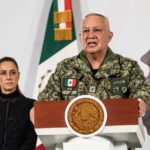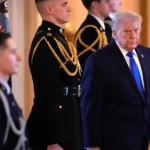
Ford Motor Co. is turning to a Chinese company to provide a new form of battery for its electric vehicles.
The automaker announced in a news release Thursday that it will begin importing batteries from Contemporary Amperex Technology Co. Ltd. starting next year.
Ford is acquiring lithium iron phosphate batteries from the company, according to Axios.
The automaker has used nickel cobalt manganese for its electric vehicle batteries, but supply problems for those materials have proven costly.
Ford said the deal with CATL will enable the company to produce 600,000 electric vehicles a year by 2023, potentially introducing the new cars into the American market en masse, according to The New York Times.
Tesla already uses lithium batteries in its cars.
A shortage of electric vehicle batteries and the materials used to manufacture them has driven up costs and hampered the production of electric vehicles.
There is one problem with the use of lithium batteries: They pack less energy than the batteries American automakers are using, according to Axios.
The lithium batteries have 30 percent less capacity than similarly sized nickel-rich batteries, which ultimately means a shorter driving range for owners and more time spent at charging stations, the outlet reported.
Do you approve of Ford’s decision?
Yes: 3% (2 Votes)
No: 97% (70 Votes)
However, the batteries are longer-lasting and more stable, providing some advantages over the nickel batteries.
Ford said it will use the lithium batteries in its electric Mustang Mach-E and F-150 Lightning pickup.
The company does want to begin manufacturing lithium batteries in North America, pledging to build factories for the batteries by 2026.
However, the materials for producing them are largely sourced in Asia, particularly China.
Ford said in its news release that it was direct-sourcing battery cell raw materials.
“Our team has been actively engaged with partners in the United States and around the world,” said Lisa Drake, Ford Model e vice president, EV Industrialization.
“We will move fast in the key markets and regions where critical supplies are available, meeting with government officials, mining companies and processors and signing [memorandums of understanding] and agreements that reflect Ford’s [environmental, social and corporate governance] expectations and underpin Ford’s plan to bring EVs to millions.”
Access to the materials used for electric vehicle battery production has shaped up as an area of geopolitical conflict between the United States and China.
China dominates the electric vehicle battery supply chain, according to NPR.
Ford announced this week it is cutting jobs in the manufacturing of its internal combustion vehicles to use the resources for electric vehicle manufacturing.





